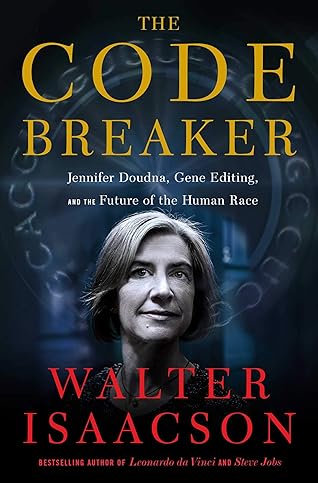More on this book
Community
Kindle Notes & Highlights
Read between
April 16 - April 24, 2022
He coined the phrase “procreative beneficence” to make the case that it is moral to choose the best genes for your unborn children.
even dismissed the concern that this could allow rich people to buy better genes for their children and thereby create a new class (or even subspecies) of enhanced elites.
And while you were at it, might you throw in blond hair and blue eyes as well?
Genomic Prediction.
Prospective parents can choose which embryo to implant based on the characteristics they want in their child.
“intellectual disability” and “height.”
But the fact that inequality already exists is not an argument to increase or permanently enshrine it.
Permitting parents to buy the best genes for their kids would represent a true qu...
This highlight has been truncated due to consecutive passage length restrictions.
Despite such objections, it’s possible to aim for some social consensus on gene editing rather than simply leaving the issue totally to individual choice.
kept to a minimum by a combination of legal sanctions and social shaming. The
“Evolution has been working toward optimizing the human genome for 3.85 billion years,” says NIH director Francis Collins, who is not an atheist.
If it’s wrong for us to use CRISPR, the reason cannot merely be that it’s unnatural. It’s just as natural as all of the tricks that bacteria and
Darwin wrote about “the clumsy, wasteful, blundering, low, and horridly cruel works of nature.”
If we humans find ways to rig the natural lottery and engineer the genetic endowments of our children, we will be less likely to view our traits as gifts that we accept. That would undermine the empathy that comes from our sense of “there but for the grace of God go I” toward our fellow humans who are less
“To acknowledge the giftedness of life is to recognize that our talents and powers are not wholly our own doing.”
When we create chemotherapies to fight cancer or vaccines to fight coronaviruses or gene-editing tools to fight birth defects, we are, quite properly, exercising mastery over nature rather than accepting the unbidden as a gift.
The idea that germline editing was “unnatural” began to recede in her thinking.
“How could you not want to make progress on coming up with ways to prevent such a thing?”
“She was very emotional about the cruelty of those who would prevent germline editing,
But his visit convinced her that if germline editing became a safe and effective way to eliminate Huntington’s, she was in favor.
more sympathetic to the view that many gene-editing decisions should be left to individual choice
“I’m an American, and putting a high priority on personal freedom and choice is part of our culture,”
One moral issue that continues to loom large for her is inequality,
By limiting gene edits to those that are truly “medically necessary,” she says, we can make it less likely that parents could seek to “enhance” their children, which she feels is morally and socially wrong.
The line between medical treatment and enhancement can be blurry, she acknowledges, but it is not totally meaningless.
we can’t unlearn this knowledge, so we need to find a prudent path forward,”
efficient way to add new sequences into DNA.
transposons,
“Feng then quietly raced to get his paper published first,”
Well, yes, I think, almost every field can be, from business to journalism. What distinguishes biological research is the collaboration that is woven in. The
The problem is that the distinction is difficult to define and even more difficult to enforce.


